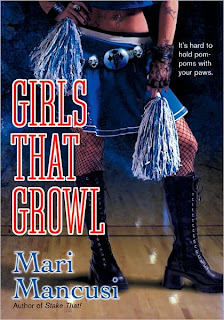STATUS: I signed a new author today and that’s always fun.
What’s playing on the iPod right now? LIFE IN A NORTHERN TOWN by The Dream Academy
I think you blog readers should know by now that asking to define literary fiction is just a disaster waiting to happen. Everyone has a different definition.
A literary agent friend of mine defines it as any manuscript he happens to pitch as literary fiction. I’m going with that…
But back to talking about pitching whatever it is that we call literary fiction. The next book is actually a novel chosen by the City of Denver for their One Book One Denver program (and I’m actually not sure if the author Nick Arvin knows this or not but I’m actually the person who recommended this title as a possibility to Denver’s Cultural Affairs liaison who headed up the search committee—and no, he’s not one of my authors so no self-interest was involved). I did lobby hard for NO PLACE SAFE for next year but alas, the program only chooses fiction.
ARTICLES OF WAR by Nick Arvin
From the cover flap:
George Tilson is an eighteen-year-old Iowan farm boy who is drafted into the army during World War II and sent to Normandy shortly after D-Day. Nicknamed “Heck” because of his reluctance to curse, he is a typical soldier, willing to do his duty without fuss or much musing about grand goals. The night before he is trucked into the combat zone, Heck meets a young French refugee and her family, an encounter that unsettles him greatly.
During his first, horrific exposure to combat, Heck discovers a dark truth about himself: he is a coward. Shamed by his fears and tortured by the never-ending physical dangers around him, he struggles to survive, to live up to the ideal of the American fighting man, and to make sense of his feelings for the young French woman. As the stark reality of combat–the knowledge that he could cease to exist at any moment–presses in on him, Heck makes a series of choices that would be rational in every human situation except war.
With remorseless, hypnotic clarity, Arvin draws readers into the unimaginable fear, violence, and chaos of the war zone. Arvin layers profound meaning within a brilliantly executed minimalist style. His portrayal of the emotional and physical terrors Heck can neither understand nor escape is one of the most disturbing and unforgettable accounts of the life of a soldier ever written.
Now let’s analyze:
1. This cover copy is 9 sentences long.
2. The first three sentences of the first paragraph give us the background regarding the main character and then the opening setting of the novel. This will lead into the main crux of the story which will be revealed in the first sentence of the next paragraph. Now take a moment to think about why we need to know about the main protagonist and the setting before the conflict is revealed. If you did so, you should realize that understanding Heck’s “before” nature is crucial to how this story will unfold—hence the spotlight on it.
3. The second paragraph goes right to the heart of the story. Heck is going to make some choices and we imagine, as readers, that it’s going to be revealed to us what those choices are. I don’t know about you but I’m feeling the tension already. Every word in this second paragraph is carefully chosen. Notice word choices such as “horrific exposure,” “dark truth,” “shamed,” “stark reality,” and I could go on. I point this out because if you write literary fiction, your word choices in your query pitch need to reflect the literary nature of the work. For this novel, every word conveys a sense of darkness—maybe even despair.
4. The last paragraph is the publisher’s viewpoint. Once again, this is what the publisher hopes the reader will take from reading this novel. I think if a writer wanted to include some of the thematic elements, he/she could by simply rewrite the last couple of sentences so it would make more sense in a query letter. For example, the first sentence of the last paragraph could read like this: “With remorseless and hypnotic clarity, my novel exposes the reader to the unimaginable fear, violence, and chaos of the war zone.”
The last sentence you can’t use without sounding like a dork. Goes without saying but you be amazed at how many unpublished writers insert grandiose projections about their unproven writing ability in their query letters.

